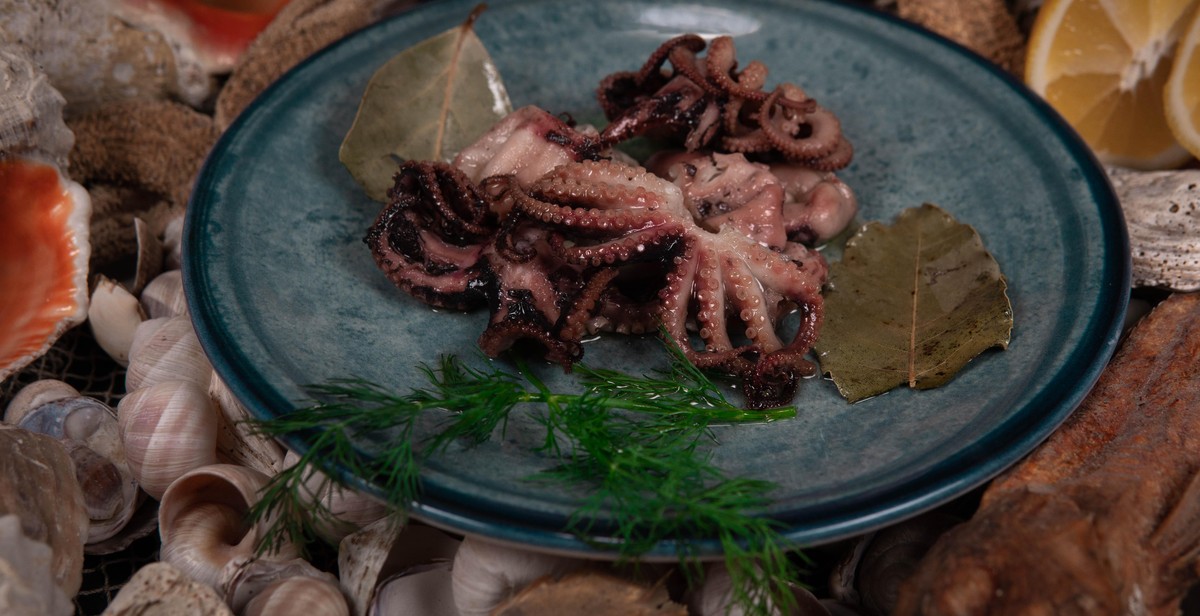The Benefits of Supporting Sustainable Seafood Practices
Seafood is an essential part of the human diet and is enjoyed by millions of people around the world. However, overfishing and unsustainable fishing practices have led to a decline in fish populations and the degradation of marine ecosystems. This has prompted a growing awareness of the need to support sustainable seafood practices.
Sustainable seafood practices are those that promote the long-term health of fish populations and the marine environment. These practices include responsible fishing techniques, effective management of fish stocks, and the protection of critical habitats.
The Importance of Sustainable Seafood Practices
Supporting sustainable seafood practices has numerous benefits for both the environment and the economy. By promoting responsible fishing techniques and effective management of fish stocks, we can help ensure that fish populations remain healthy and abundant for future generations.
- Protecting marine ecosystems: Sustainable seafood practices help to protect marine ecosystems by reducing the impact of fishing on the environment. This includes minimizing bycatch, reducing habitat damage, and preventing overfishing.
- Promoting food security: Sustainable seafood practices can help to promote food security by ensuring that fish populations remain healthy and abundant. This is especially important for communities that rely on seafood as a primary source of protein.
- Supporting local economies: Sustainable seafood practices can also support local economies by promoting responsible fishing practices and creating jobs in the fishing industry.
In conclusion, supporting sustainable seafood practices is essential for protecting the environment and promoting food security and economic development. By making informed choices about the seafood we consume and supporting sustainable fishing practices, we can help ensure a healthy and sustainable future for our oceans and the communities that depend on them.

What is sustainable seafood?
Sustainable seafood refers to the seafood that is harvested or farmed in a way that ensures the long-term health and viability of the species, as well as the ocean or freshwater ecosystem in which it resides. This means that the seafood is caught or farmed using methods that minimize damage to the environment and other marine life, and that the fish populations are able to replenish themselves naturally without being overfished.
Definition of sustainable seafood
The term “sustainable seafood” can be defined as seafood that is caught or farmed in a way that meets the following criteria:
- The fishing or farming method does not harm the environment or other marine life
- The fish populations are able to replenish themselves naturally without being overfished
- The seafood is traceable back to its source, so consumers know where it came from and how it was caught or farmed
These criteria are important because they ensure that the seafood we consume is not only healthy and delicious, but also sustainable for future generations.
Why is sustainable seafood important?
Sustainable seafood is important for several reasons:
- Preserving marine life: Overfishing and destructive fishing practices can lead to the depletion of fish populations and damage to marine ecosystems. By choosing sustainable seafood, we can help preserve the health and diversity of our oceans and freshwater systems.
- Protecting the environment: Some fishing and farming methods can harm the environment by polluting waterways, damaging habitats, and contributing to climate change. Sustainable seafood practices prioritize environmental protection and minimize these negative impacts.
- Supporting local economies: Sustainable fishing and farming practices can also support local economies and communities by creating jobs and promoting responsible stewardship of natural resources.
- Ensuring food security: As the world’s population continues to grow, sustainable seafood practices can help ensure that we have a reliable and secure source of food for generations to come.
Overall, choosing sustainable seafood is not only good for our health and taste buds, but also for the health of our planet and future generations. By making informed choices about the seafood we consume, we can support sustainable fishing and farming practices and help protect our oceans and freshwater systems.

Benefits of supporting sustainable seafood practices
Supporting sustainable seafood practices comes with numerous benefits. Here are some of the key benefits:
1. Protecting marine ecosystems
Overfishing and destructive fishing practices have a significant impact on marine ecosystems. By supporting sustainable seafood practices, we can help protect these ecosystems. Sustainable fishing methods, such as using selective gear and avoiding fishing in sensitive areas, can minimize the impact on non-target species and their habitats. This helps to maintain the balance of the marine ecosystem and ensures the long-term sustainability of seafood resources.
2. Supporting local economies
Sustainable seafood practices can also benefit local economies. By supporting local and sustainable fishing practices, we can help to create jobs and support small-scale fishing communities. This helps to promote economic growth and stability in coastal areas, which are often heavily reliant on the seafood industry. By choosing sustainable seafood options, we can also support local businesses that are committed to responsible and ethical fishing practices.
3. Improving seafood quality and taste
Sustainable seafood practices can lead to improved seafood quality and taste. Sustainable fishing methods, such as using hook and line or trap fishing, can result in higher quality seafood that is fresher and more flavorful. This is because these methods often result in less stress on the fish, which can affect the taste and texture of the meat. In addition, sustainable fishing practices can help to ensure that seafood is harvested at the right time, which can further enhance its quality and taste.
Overall, supporting sustainable seafood practices can have a positive impact on the environment, local economies, and the quality of the seafood we consume. By making informed choices and supporting responsible and ethical fishing practices, we can help to ensure the long-term sustainability of our oceans and seafood resources.

How to support sustainable seafood practices
Supporting sustainable seafood practices is an important step towards protecting our oceans and preserving marine life. Here are some steps you can take to ensure that the seafood you consume is sustainably sourced:
1. Look for eco-friendly certifications
One way to support sustainable seafood practices is to look for eco-friendly certifications when purchasing seafood. These certifications indicate that the seafood has been sourced from a responsible and sustainable fishery or farm. Some of the most well-known certifications include:
- Marine Stewardship Council (MSC)
- Aquaculture Stewardship Council (ASC)
- Best Aquaculture Practices (BAP)
When shopping for seafood, look for products that bear one of these certifications to ensure that you are supporting sustainable seafood practices.
2. Know your seafood sources
Another important step in supporting sustainable seafood practices is to know where your seafood comes from. This means doing some research to find out which fisheries and farms are committed to sustainable practices. You can also look for seafood that is locally sourced, as this can help to reduce the environmental impact of transportation.
If you are unsure about the sustainability of a particular seafood product, you can consult resources such as the Seafood Watch guide from the Monterey Bay Aquarium. This guide provides information on the sustainability of different types of seafood and can help you make informed choices.
3. Choose sustainable seafood options
Finally, one of the most important steps in supporting sustainable seafood practices is to choose seafood that is known to be sustainable. This means avoiding seafood that is overfished or caught using destructive methods such as bottom trawling. Some sustainable seafood options include:
- Wild-caught Alaskan salmon
- US farmed tilapia
- US farmed catfish
- US wild-caught Pacific halibut
By choosing sustainable seafood options, you can help to reduce the impact of fishing on our oceans and support the long-term viability of marine ecosystems.
| Tip: | When dining out, ask your server about the sustainability of the seafood options on the menu. Many restaurants now offer sustainable seafood choices, and asking about sustainability can help to encourage more restaurants to make responsible choices. |
|---|

Conclusion
Supporting sustainable seafood practices is not only beneficial for the environment but also for the economy and our health. By choosing to consume sustainably sourced seafood, we can ensure the long-term viability of our oceans and the communities that rely on them.
Environmental Benefits
By supporting sustainable seafood practices, we can reduce overfishing, bycatch, and habitat destruction. This helps to maintain healthy and diverse marine ecosystems, which are essential for the survival of numerous species, including those that are not directly harvested for human consumption.
Economic Benefits
Investing in sustainable seafood practices can help to create jobs and support coastal communities that rely on fishing for their livelihoods. Additionally, sustainable seafood practices can help to ensure the long-term viability of the fishing industry by preventing overfishing and depletion of fish stocks.
Health Benefits
Consuming sustainably sourced seafood can help to reduce exposure to harmful contaminants, such as mercury, PCBs, and dioxins. Additionally, sustainably sourced seafood is often fresher and of higher quality, which can provide additional health benefits.
Take Action
There are many ways to support sustainable seafood practices, including choosing to purchase seafood that is certified by organizations like the Marine Stewardship Council or the Aquaculture Stewardship Council. Additionally, you can support sustainable seafood practices by encouraging your local restaurants and grocery stores to source their seafood sustainably.
| Environmental Benefits | Economic Benefits | Health Benefits |
|---|---|---|
| Reduces overfishing, bycatch, and habitat destruction | Creates jobs and supports coastal communities | Reduces exposure to harmful contaminants |
| Maintains healthy and diverse marine ecosystems | Ensures the long-term viability of the fishing industry | Provides fresher and higher quality seafood |
By taking action to support sustainable seafood practices, we can help to ensure a healthier and more sustainable future for our oceans, our communities, and ourselves.
